


EDWARD VI 1547 - 1553 (E6) Lived 1537 -
1553
|
1547
1548
|
A force under Somerset, ably
assisted by the Earl of Warwick (later Northumberland),
defeats the Scots - allies of the French - at the Battle of Pinkie,
near Musselburgh, Scotland.
Ivan IV is crowned the first Tsar of Russia. He attacks
the Tartars in the south, and starts a thorough reform of the
administrative and legal systems to bring them under central
control.

The Italian Gabriel Fallopius is
appointed professor of anatomy at Padua University. He makes
discoveries concerning the structure of the inner ear and the
female reproductive organs.
|
|
1549
1550
|
The Kett Rebellion breaks out in
Norfolk against the enclosure of
common land. The revolt, led by Robert Kett
and his brother, is easily crushed and the Ketts are hanged.
Edward VI's
Book of Common Prayer is published. Largely the work of
Cranmer, this and a later edition of
1552 bring greater uniformity to church services throughout
the land.
The French poet and writer Joachim Du Bellay publishes the manifesto of La
Pléiade, a new school of French
poetry based on the classical works of the Greeks and Romans.
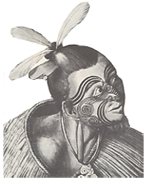
The Jesuit priest Francis
Xavier, arrives in Japan and, over the next 3 years,
establishes a thriving Roman Catholic mission, but he dies in
1552 while attempting to reach China.
The Maoris, a Polynesian people who had been coming to
settle in present-day New Zealand since the ninth
century, begin to inhabit the southern island in larger
numbers.
ThexItalian
art historian Giorgio
Vasari publishes his The
Lives of the Most Excellent
Italian Architects, Painters and Sculptors, the work
by which he is best known. He is also an accomplished
architect.
TheXmisrule
of the Ming Emperor Chia-ching brings to an end the long period of peace in
China. Mongol tribesmen besiege Peking, and sea-raiders
plunder the south-east coast.
|
|
1551
|
After conquering more land
from Persia around Lake Van, the Ottoman Sultan Suleyman I
captures Tripoli in North Africa, strengthening his control
over the eastern Mediterranean.
The Swiss naturalist Konrad von Gesner
begins to write his Historia
Animalium, an encyclopedia of the animal world. He is
regarded as the founder of the science of zoology.

The Italian Giovanni Palestrina, one of
the greatest of Renaissance composers, is made director of
music at St. Peter’s, Rome. During a long career, he wrote a
vast amount of church music.
|
|
1553
|
The English navigator Richard Chancellor, during an attempt to find a
north-east passage to China, arrives at the port of
Archangel. His voyage opens up Anglo-Russian trade.
The Italian author Straparola
completes The Pleasant Nights, one
of the earliest collections of folk tales. It introduces such
stories as Beauty and the Beast and
Puss in Boots.
X
Edward VI dies of consumption,
aged 15. ThexDuke of Northumberland
places his daughter-in-law, Lady Jane Grey, on the throne, but the Roman Catholic Mary,
daughter of Catherine of Aragon, marches on London and is
acclaimed Queen as Mary
I.
|
Acknowledgements
Edward VI:
detail, attributed to the Flemish painter Guillaume Scrots
(active in England 1537-1553) – Royal Collection, UK. Map (Europe): licensed under Creative Commons-http://worldhistory.wikispaces.com/Reformation.
Coat of Arms: licensed under Creative
Commons. Author: Sodacan – https://commons.wikimedia.org.
E6-1547-1553-E6-1547-1553-E6-1547-1553-E6-1547-1553-E6-1547-1553-E6-1547-1553-E6
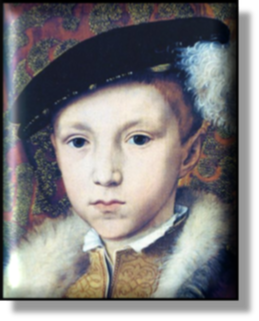 xxxxxEdward VI was Henry VIII's only son by his third wife,
Jane Seymour. Because he was only nine years old when he came to
the throne, the government of the country, by his father's will,
was entrusted to a council of sixteen regents, but his uncle the Duke of Somerset
(1506-1552), taking the title of
Lord Protector, took over sole command. Having invaded Scotland -
allied once again with the French - and defeated the Scottish
army at the Battle of Pinkie in September 1547, he then set about
establishing Protestantism on a firmer basis, fully supported by
Archbishop Cranmer. The Six Articles of 1539, enforcing the major
tenets of the Roman Catholic faith, were repealed, English was
made compulsory in church services, and, despite some opposition
from Roman Catholics, the first Book of Common Prayer was
introduced and imposed.
xxxxxEdward VI was Henry VIII's only son by his third wife,
Jane Seymour. Because he was only nine years old when he came to
the throne, the government of the country, by his father's will,
was entrusted to a council of sixteen regents, but his uncle the Duke of Somerset
(1506-1552), taking the title of
Lord Protector, took over sole command. Having invaded Scotland -
allied once again with the French - and defeated the Scottish
army at the Battle of Pinkie in September 1547, he then set about
establishing Protestantism on a firmer basis, fully supported by
Archbishop Cranmer. The Six Articles of 1539, enforcing the major
tenets of the Roman Catholic faith, were repealed, English was
made compulsory in church services, and, despite some opposition
from Roman Catholics, the first Book of Common Prayer was
introduced and imposed.
xxxxxIn 1549,
however, Somerset was faced with a peasants' revolt, known as the
Kett Rebellion, and he had some difficulty in suppressing it.
Using this situation to his advantage, the unscrupulous John
Dudley, Earl of Warwick (1504-1553),
a distinguished soldier and one of the
original regents, persuaded the young king to have Somerset
removed from office - he was later executed in 1552 on a
trumped-up charge of treason.
xxxxxDudley, now
in full command and assuming the title of the Duke
of Northumberland, convinced the young
and ailing Edward of the need to name his Protestant cousin, Lady Jane Grey,
as his successor in preference to his half-sisters, Mary and
Elizabeth. When the king died of tuberculosis at Greenwich in July
1553, Lady Jane Grey (who, in the meantime, had been married to
Northumberland's son!) was indeed proclaimed Queen, but her reign
was destined to last but nine days. Rallying support, the Roman
Catholic Mary marched on London, entered the city in triumph, and
claimed the crown. Northumberland was executed for treason in
August, and Lady Jane Grey, the innocent victim of a political plot,
was imprisoned in the Tower of London and beheaded the following
year.
xxxxxIncidentally, in 1715 the English dramatist and poet Nicholas Rowe, the first
writer to attempt a critical edition of the works of William
Shakespeare, wrote a play entitled The Tragedy
of Lady Jane Grey, produced in the style of the famous
bard. ...…
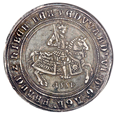
xxxxx...... It was during this reign that fine silver was again
used for the making of coins. The silver crown then produced -
worth five shillings - was the first English coin to be dated
in Arabic numerals.
Including:
Dukes of Somerset
and Northumberland

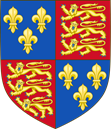
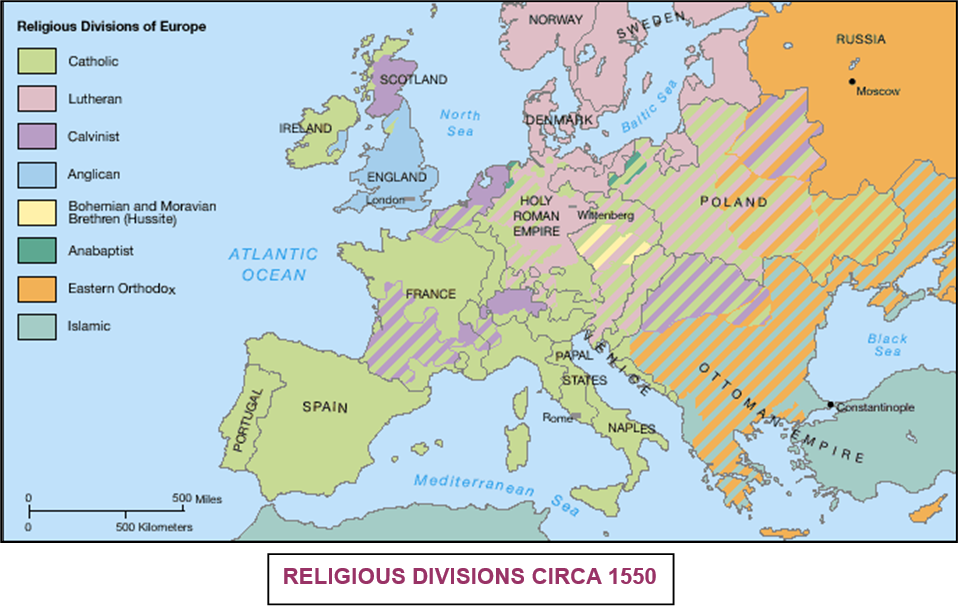






Timewise Traveller is a free
non-profit resource. However, if you have found it of
interest/value and would like to show your appreciation, the author
would welcome any contribution to Cancer Research UK.
To visit our Cancer Research
page and make a small donation, click 















 xxxxx
xxxxx
